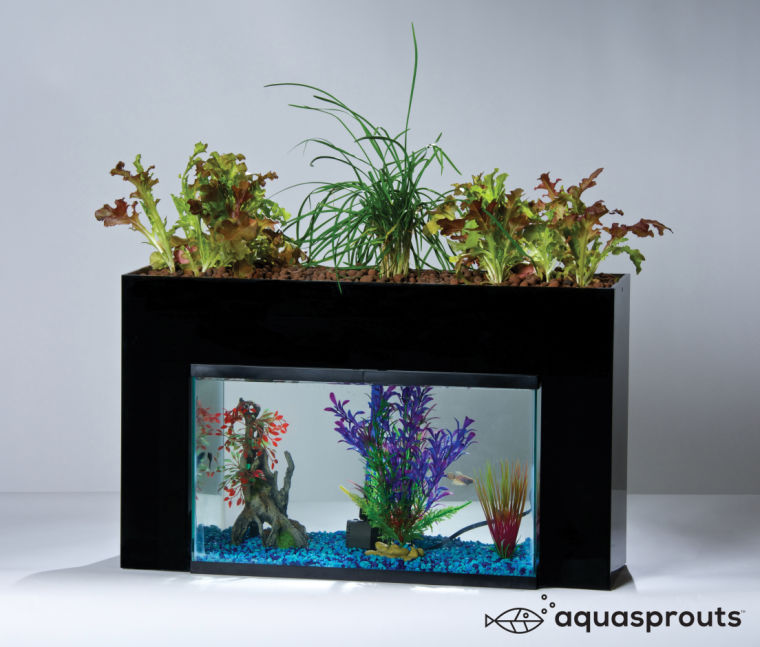Student’s invention gaining national recognition
If Jack Ikard could change anything about his days, it would be reducing the amount of time he finds himself saying “fish waste.”
Ikard is an Austin native and a sophomore at St. Edward’s University who is studying public relations and advertising with a minor in environmental science. He is also gaining recognition for his invention: an aquaponic aquarium. He also has a business named AquaSprouts and a website.
Aquaponics is a sustainable form of agriculture. In Ikard’s system, the aquarium essentially uses fish waste as plant nutrients. When fish produce waste, the pump absorbs it and converts it into nutrients. It’s a cycle: the fish feed the plants, and the plants clean the water.
“I got into aquaponics about four years ago, making systems just in my backyard. I made just real abstract aquaponic systems and it was just purely out of passion,” Ikard said.
Ikard describes the aquaponic aquarium as the perfect learning tool. It can go into classrooms or homes and anyone who has an aquarium or likes gardening can benefit from it, he said.
Ikard’s first prototype was created a year and half ago. Last year, AquaSprouts, tabled at SXSW Eco. Most recently, Ikard and his system were featured in The New York Times along with 20 other innovative student ideas.
On March 3, the AquaSprouts team launched a Kickstarter project. Kickstarter is a website that allows people to donate money to fund a project. The goal for the AquaSprouts Kickstarter is $100,000 in 31 days. Part of the idea behind the Kickstarter is to maintain the product under Ikard and his team’s creative vision.
“We can absolutely go and find someone who’s going to throw money at us and take a piece of our equity, but in order to keep it in our hands, in our grasp, knowing under our control, this is going to be the best way to raise funds in order for us to allow this to continue in our vision,” Ikard said.
Currently AquaSprouts laser cuts system is timely and tedious, according to Ikard. With the campaign, they hope to raise money to create a mold for a prototype that will cut time and overall costs.
For the campaign, a system without an aquarium will cost $139. There are 500 units setup with special early-bird pricing, which comes with an aquarium and costs $149. After the specials run out, the system and tank will cost $175.
Jake Lane, a senior entrepreneurship major at St. Edward’s who is AquaSprouts’s graphic designer and web developer, thinks the product’s versatility helps it stand out.
“The beautiful thing about this product is there is no true market that we’re touching. It’s everything. It’s anybody who just wants to have an aquarium and doesn’t want to have to clean it, or people who want to have a starter aquaponics kit, so it touches every base,” Lane said.
Co-founder Shannon Crowe, who is currently studying abroad in Argentina, has traveled the world learning more about aquaponics.
“She’s been very involved in aquaponics and knows that it’s a super sustainable form of agriculture. You’re not having to use pesticides, not having to use artificial chemicals, no fertilizers, so it’s as sustainable as it can get,” Ikard said.
AquaSprouts currently has a local market in Austin. The systems have been selling at The Great Outdoors store across from campus, and one system was even at Juiceland for a week to gain some attention.
“There’s been good feedback locally,” Lane said.
Ikard also hopes to produce the systems faster so that they may reach a national market as well.
“We get a message once a week from somebody either on our Twitter or our Facebook asking us if we drop ship internationally, and we’re just like we hope so. Eventually. One day, we will,” Ikard said.
Follow Lyanne on Twitter @lyannealexia







